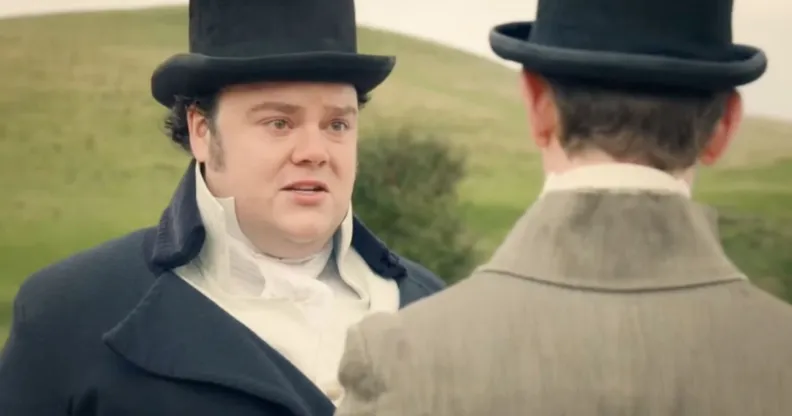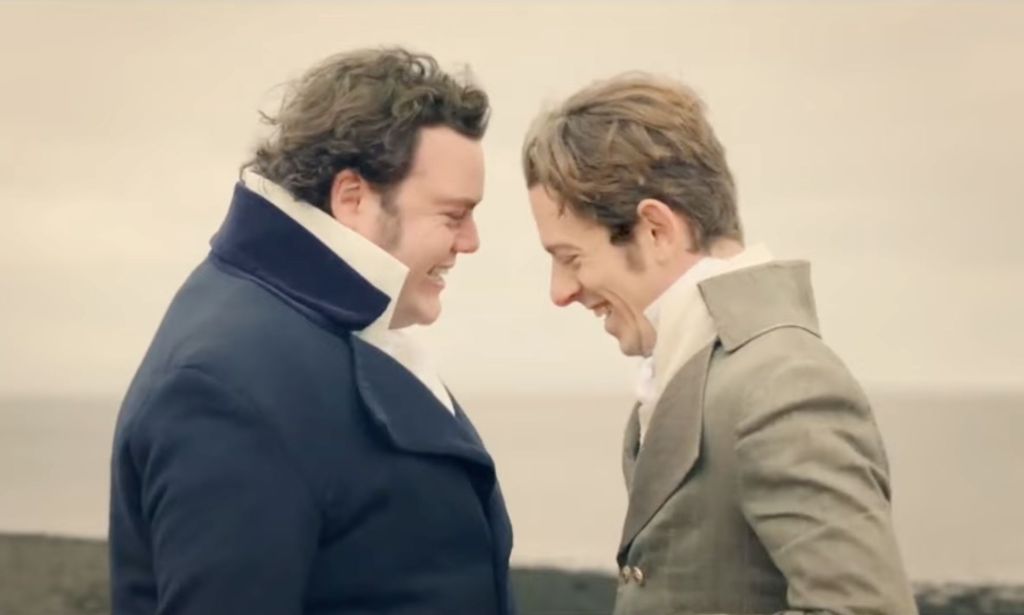Sanditon star Turlough Convery explains why Jane Austen would have written the show’s gay love story

Sanditon star Turlough Convery says Jane Austen was a ‘rule breaker’ and would have written his character’s gay storyline if she were alive today. (ITV)
Sanditon’s Turlough Convery “deeply believes” beloved classic author Jane Austen would have approved of – and even written – his character’s gay storyline.
Like many Austen adaptations, the historical drama ITV series has clenched viewers’ hearts in a vice-like grip. It has smouldering romance, gorgeous landscapes and full-blooded drama sprinkled with commentary on social issues, making it a must-watch for Austen stans.
Sanditon, based on an unfinished novel by Austen, is in its third season, and romances abound as the showrunners try to wrap up the show in lovey-dovey bows for all its beloved characters.
Convery – who plays Arthur Parker, an initially comic relief character who became an unsung queer hero as Sanditon progressed – thought Austen would have written an LGBTQ+ storyline for his character.
“I think Jane Austen, if she was writing now, would have written Arthur like that – I really, deeply believe that,” Convery told Metro.co.uk.
“Because the reality is that a person like Arthur, a person who is othered in society, who is beginning to understand himself and his sexuality and who he is within this world, and understanding what potential romantic connection is – those people existed, at all times they existed!
“Jane Austen would have known and seen people like this.”
Over the course of the show, Arthur shifts from being a classically silly Austen character, who struggles with hypochondria and is very self-involved, to coming into his own as he finds his self-worth.
As he stepped into the spotlight in season three, Arthur bravely came out as gay and confessed his feelings for Lord Harry Montrose (Edward Davis), a charismatic and confident new face in Sanditon.

This heartwarming queer storyline was exactly something Austen would have added into her works if she was alive today, Convery argued.
Convery described Austen, who wrote six completed novels that have gained worldwide renown, as a “rulebreaker” because she didn’t accept the power dynamics, cultural norms and status quo of her time period.
“She gave women a voice at a time when women weren’t allowed to have a voice,” the Irish actor said.
“And I think if that doesn’t speak to who she would be now and who she would be writing about – characters like Arthur – then I think we’re misconstruing history.”
Convery added there’s a “really big space” to fill as the only openly queer character in a historical Austen-adjacent series, saying it’s not been “explored”. But he thought it was a “really cool thing” Sanditon took that responsibility “very seriously”.
Though LGBTQ+ topics aren’t explicitly brought up in Austen’s works, the novels have taken on lives of their own after the author’s death, sprouting several queer adaptations.
Plus, there is a tradition of LGBTQ+ people connecting with the themes of loneliness and struggling to love openly and freely in her works.
Historians have also argued that Austen, who famously never married but did have admirers, could have been queer herself.
How did this story make you feel?

